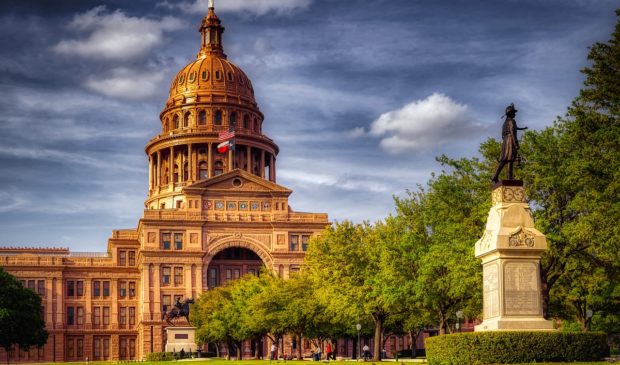Travis County contemplates small wins, big losses at Legislature
Wednesday, May 29, 2019 by
Jack Craver Every week while the state Legislature is in session, Travis County’s chief lobbyist, Deece Eckstein, briefs members of the Commissioners Court on the bills that might affect the county. In recent months, the weekly briefing has usually been bleak, but on Tuesday he began his presentation with a rare piece of good news.
“The good news is that the Legislature has adjourned, sine die, and left town,” said Eckstein.
However, this victory was overshadowed by the major loss Travis County suffered over its taxing authority. Under a property tax reform bill that now awaits the governor’s signature, most local governments will not be able to increase property tax collections by more than 3.5 percent each year without voter approval. That’s a major change from the current 8 percent limit.
While Republican legislators have talked about putting such limits in place for years, the plans always ended up falling apart, most recently due to conflicts between Lt. Gov. Dan Patrick and former House Speaker Joe Straus. This time, finally, everything came together.
“This was the most hostile session to local governments in a generation, probably,” Eckstein said.
The new tax limits will not apply to the 2019-20 budgets that local governments, including Travis County and the city of Austin, will approve at the end of this summer. The limits will take effect in the following fiscal year.
Commissioner Jeff Travillion said the state Legislature’s decision to delay the impact of the new limits was “evilly brilliant.” Communities will not begin to “feel the impact” of budget cuts until after the next election, he said.
The Commissioners Court was hoping that the new law would exclude funds spent on indigent defense from counting toward the revenue limits. While the final version of the bill does include an exemption for indigent defense, it only applies to money that counties spend contracting cases out to private attorneys. Any spending on dedicated public defenders or the overhead costs of providing indigent defense will count toward the revenue limit.
That could spell trouble for Travis County, which recently applied for a state grant to set up a public defender’s office. While the startup funds from the grant may be exempt from the revenue caps, the ongoing cost of staffing the new agency will not be exempt.
Commissioner Gerald Daugherty, who noted that he was the lone Republican on the court as well as the only Republican among the 57 county officials elected to partisan office, wondered whether the legislators who supported the revenue caps would face any backlash when they come up for reelection.
Daugherty suggested that most of the legislators would likely win anyway, but said all of them will face pressure from the local governments in their districts for the “very precarious position” they will now be in.
The Commissioners Court also backed some bills that were approved by the Legislature. Those include:
- A bill that establishes the right of police officers to take intoxicated individuals to sobering centers instead of jails. Officers in Austin have already been doing this, but the new law will ensure that they will not be held liable if anything goes wrong after the person is dropped off at the center.
- A new law that broadens the ability of judges to have their personal information redacted from property records. The law was prompted by the attempted assassination of Travis County District Judge Julie Kocurek in 2015.
- A law that allows Travis County District Court of Law judges to receive longevity pay like other county employees. The law undoes a quirk in state law that barred county court of law judges in Travis County from ever being paid more than district judges.
- A bill creating a new Civil District Court in Travis County.
The county was happy to see some legislation it opposed fail, notably a proposal that would have barred local governments from spending funds on lobbying for or against legislation at the state level.
Other bills that the county unsuccessfully advocated for include:
- Proposals to grant local governments more flexibility in designing a homestead exemption. Some officials have called for a flat-dollar exemption, where the exemption is tied to a dollar amount (e.g., $50,000) rather than a percentage of property value. A flat-dollar amount would shift more of the benefit to lower-income homeowners.
- A proposal to authorize the Texas Forest Service to reimburse Travis County when it sends its STAR helicopter rescue team to rescue missions in other counties.
- A proposal to recover millions of dollars in vehicle fees that Travis County collected and sent to the state through the now-defunct Low-Income Vehicle Repair Assistance Program.
- A proposal to allow counties to charge people with class C misdemeanors for violations of park rules such as starting open fires, using glass bottles, etc.
The Austin Monitor’s work is made possible by donations from the community. Though our reporting covers donors from time to time, we are careful to keep business and editorial efforts separate while maintaining transparency. A complete list of donors is available here, and our code of ethics is explained here.
You're a community leader
And we’re honored you look to us for serious, in-depth news. You know a strong community needs local and dedicated watchdog reporting. We’re here for you and that won’t change. Now will you take the powerful next step and support our nonprofit news organization?










